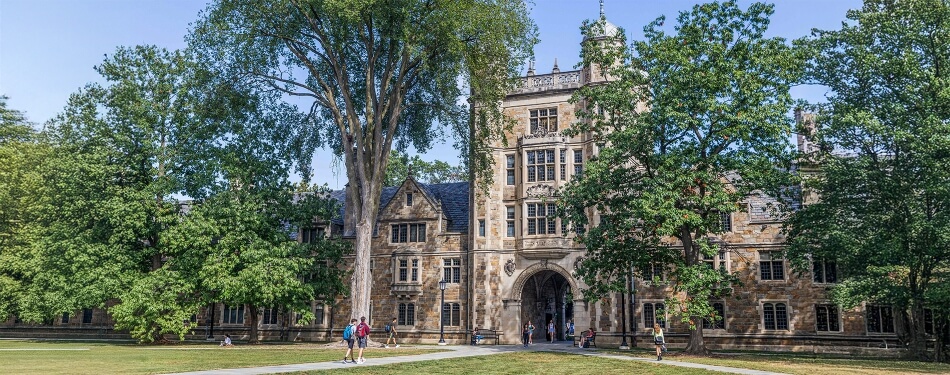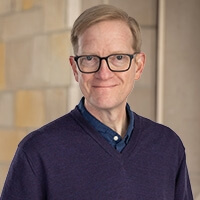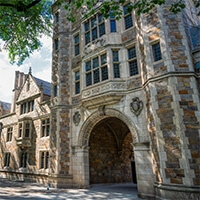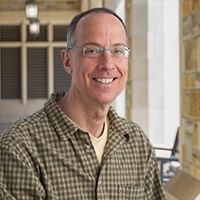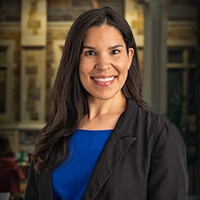As part of the end-of-year honors and awards program, six Michigan Law students and one student organization received Excellence in Pro Bono Service Awards.
The awards are granted annually to students who have shown dedication to pro bono service while balancing their academic coursework. Whether it be through participation in clinical programs and student-led initiatives, these outstanding students are selected for embodying Michigan Law’s core values.
In addition, 52 JD students and three LLM students were recognized for completing the Pro Bono Pledge, totalling more than 8,770 hours of service during their time at Michigan Law.
“Reading through this year’s nominations was incredibly moving,” said Professor Amy Sankaran, ’01, director of Michigan Law’s Externship and Pro Bono Programs. “Our students are doing meaningful, often difficult work in service of others, not for credit or recognition, but because they care deeply about justice. The winners of these awards truly reflect the heart of our community. Their dedication reminds us that pro bono service isn’t just something lawyers can do—rather, it’s something we owe to the communities we serve. We hope their example inspires a lifelong commitment to using the law in service of others, starting here and lasting well beyond graduation.”
Meet the 2025 Pro Bono Award winners
Outstanding 1L Award: Hank Peters-Wood
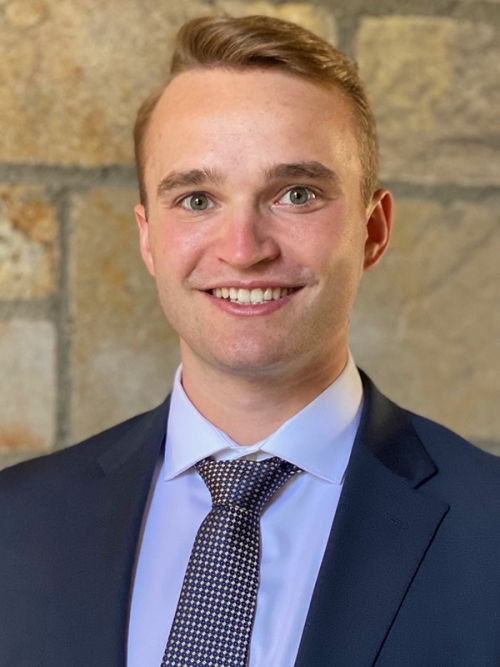
Hank Peters-Wood completed more than 40 hours with the Sentence Commutation Project, an extraordinary number of hours for a 1L. In addition, those who nominated him noted their admiration for his passion, dedication, and commitment to helping his incarcerated clients.
“Pro bono work presents a unique opportunity for 1Ls to engage in meaningful legal service. While the majority of time spent during the first year of law school is dedicated to reading casebooks, my experience with the Sentence Commutation Project allowed me to advocate on behalf of clients in need from the get-go. Pro bono work serves as a great reminder for why I chose to go to law school, and it has become a foundational part of my time at Michigan Law.”
—Hank Peters-Wood, Sentence Commutation Project
Outstanding 2L Award: Alex Jarecki
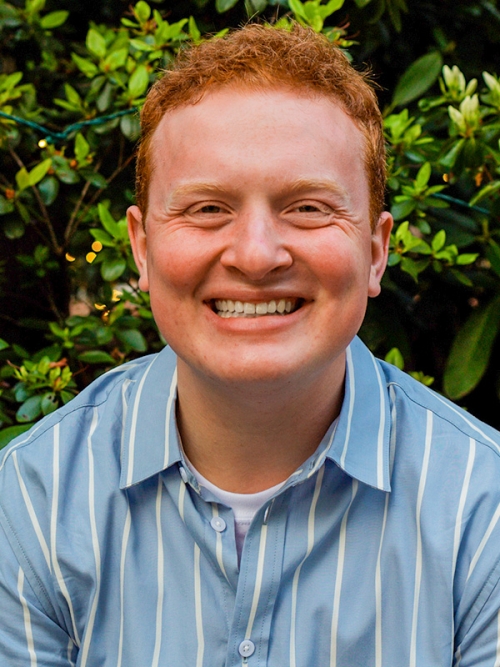
Alex Jarecki has been working with OUTreach since his 1L year. His nominator highlighted his passion for working with the LGBTQ+ community and his dedication to showing up for his clients.
“I came to law school because I want to make a direct impact on people’s lives. By participating in pro bono work, I’ve been able to do that while still in school. I joined OUTreach at the beginning of my 1L year and have continued to work with them and a few other projects over my two years. Direct client work, whether through pro bono opportunities or clinics, is a great reminder of why I wanted to become a lawyer in the first place.”
—Alex Jarecki, OUTreach
Outstanding 2L Award: Gabriel Jimenez
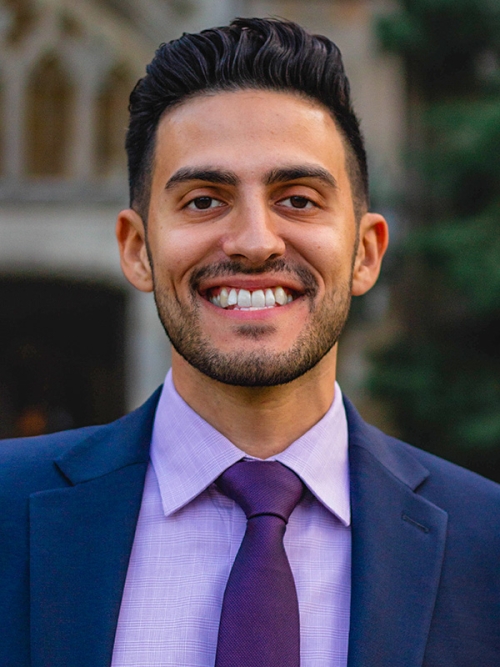
Gabriel Jimenez participated in a number of pro bono projects, including the Sentence Commutation Project and OUTreach. He also attended expungement fairs and worked at a naturalization clinic. Even while juggling these causes, Jimenez’s nominator recognized his dedication and ability to go above and beyond for his clients.
“Pro bono work has given me the means to use my immense Michigan Law privilege in a way that both grounds the law in real context and serves those most marginalized and forsaken by legal systems.”
—Gabriel Jimenez, Law Students for Justice in Palestine, National Lawyers Guild Legal Observer, OUTreach, Sentence Commutation Project
Outstanding 3L Award: Alex Rivard
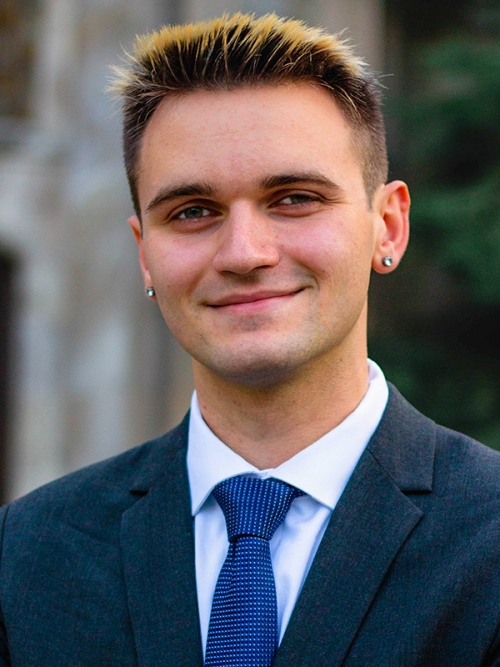
Alex Rivard worked with OUTreach during all three years of law school. For two of those three years, he served as a co-chair for the project. Rivard is recognized as being dedicated and passionate about pro bono work.
“Pro bono projects provide an excellent opportunity for law students to develop the skills we learn in law school while making a real difference in the lives of those around us. I am incredibly proud of the work we have done in OUTreach to support underprivileged members of the LGBTQIA+ community—individuals whose legal needs are often overlooked or underserved. Working with this project over the past three years has reminded me of why I came to law school in the first place: to serve as an advocate for those left out of the justice system. I am grateful to have had this chance to give back to my community, and will take this commitment to public service with me into my future legal career.”
—Alex Rivard, ’25, OUTreach
Outstanding 3L Award: Grace Vedock
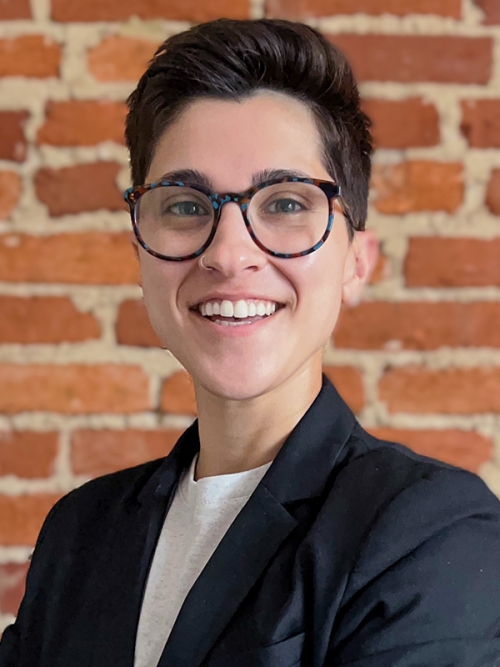
Grace Vedock conceived the idea for the Judicial Bypass Project and brought it to life. According to her nominator, Vedock has made the project great and inspired other students to join and expand its efforts.
“Learning how to help people is the most important part of getting a legal education. I founded the Judicial Bypass Project (JBP) with the help of my fellow 3Ls Jax Ingrassia, Ellory Longdon, and Sara Shapiro. The JBP offers students the unique opportunity not only to interface with clients directly, but to represent them in court—with the goal of helping clients access reproductive healthcare. It’s been extremely rewarding to watch this vision come to fruition. Our success would not be possible without the generous support of Michigan Law and its alumni network, specifically clinical professor Julia Lee ’05, local counsel Kylee Sunderlin ’13, and, of course, Amy Sankaran ’01.”
—Grace Vedock, ’25, Judicial Bypass Project
Outstanding LLM Award: Bernice Violago
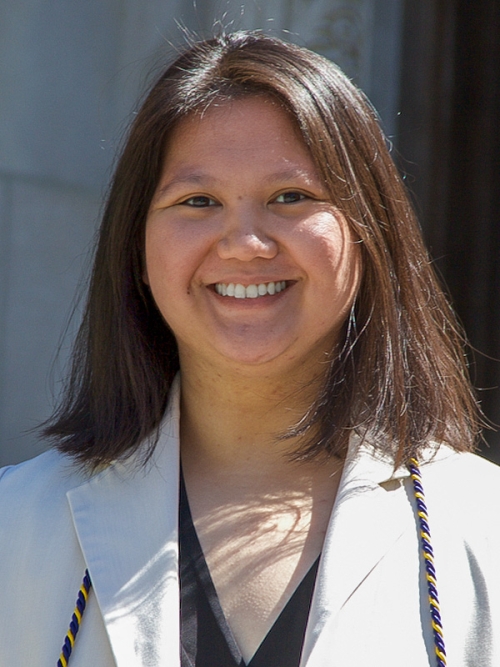
Bernice Violago was recognized for her commitment to service, especially with the Sentence Commutation Project, in her year as an LLM. Her nominator expressed admiration for her ability to balance pro bono hours during her limited time at Michigan Law. Violago has positively impacted her peers and is recognized for being kind and thoughtful through her work.
“As an LLM student, I was looking for ways to engage with the Michigan Law community outside the classroom. Pro bono work felt like the right fit for me because it gave me the opportunity to learn about the US legal system in a practical way while giving back to the community. It also gave me an avenue to use the skills I’ve learned as a practicing lawyer and to continue doing pro bono work like I had been in the Philippines. My work with the Sentence Commutation Project and Justice Indeed was particularly meaningful because it highlighted similar issues across both the Philippine and US legal systems—discrimination against marginalized groups and challenges in prison reform. Through these pro bono projects, I learned different viewpoints and approaches that inspire me to create similar solutions to our problems back home.”
—Bernice Violago, ’25, Sentence Commutation Project, Justice Indeed
Outstanding Pro Bono Project: Sentence Commutation Project
According to its nominator, the Sentence Commutation Project had a record number of new volunteers in the past year. That enabled the project to take on three times the number of sentence commutation applications that it was able to handle the previous year. Many highly dedicated board members helped streamline processes, train new volunteers, and grow the organization. Students logged 400 hours with the Sentence Commutation Project in the past year alone.
“The Sentence Commutation Project was my favorite part of law school, partially because of the incredibly caring and hardworking board and volunteers and partially because of the amazing people we get to work with. This relatively new organization continued to grow stronger this year in so many ways. We recruited a record number of volunteers to work on applications and took on 20 new applications this year. We improved almost all of our processes in so many different ways, and because of this work, we are able to give more people the opportunity for a second chance.”
—Alex Rizzutto, ’25, Sentence Commutation Project board member

